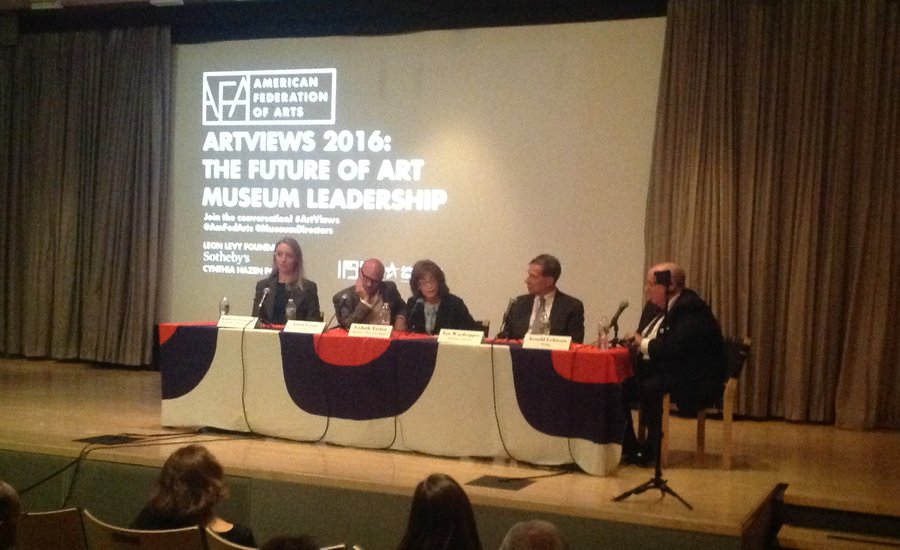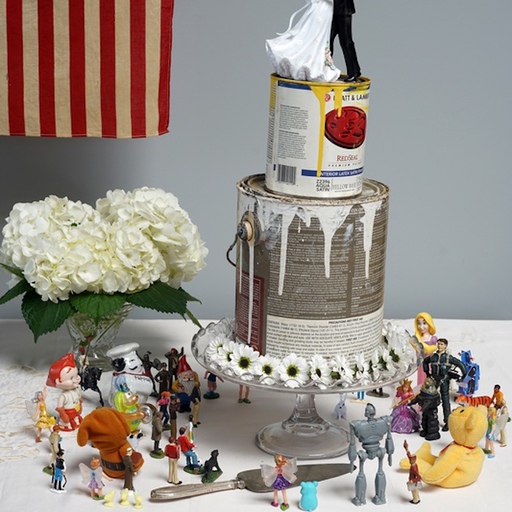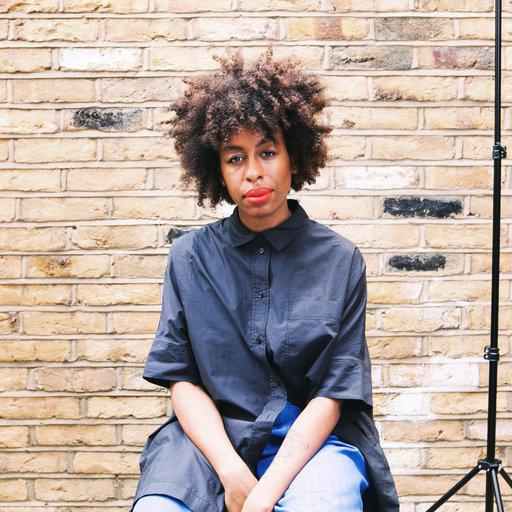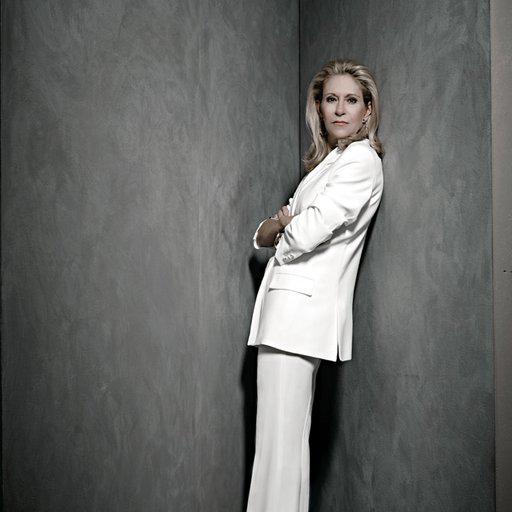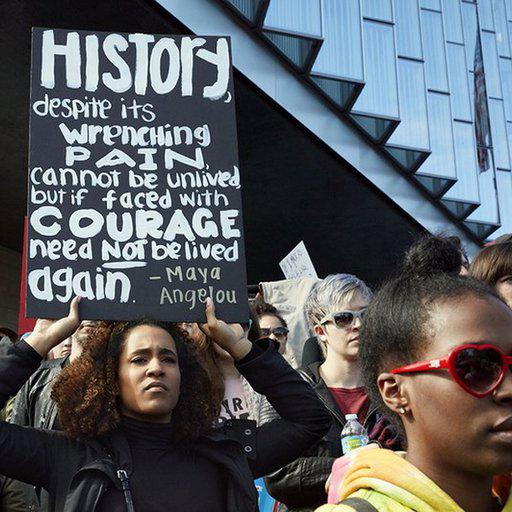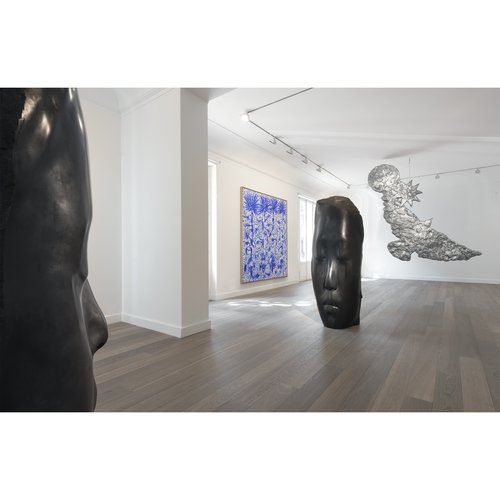Pity poor museum directors. They're facing all types of challenges, have to do more than ever, the Internet is stealing their foot traffic, they can’t afford to buy art, traditional patrons are dying and not being replaced by the new elite, etc., etc.
So how come everybody wants the job?
A brain trust of museum types gathered at Scandinavia House recently to ruminate on the topic “The Future of Art Museum Leadership," and from what they said one could glean the new and somewhat unexpected requirements applicants need to meet to get the coveted top museum jobs these days.
On the panel, sponsored by the American Federation of Arts, there was Arnold Lehman, longtime director of the Brooklyn Museumand now “Senior Advisor to the Chairman” at the Phillips auction house; Lisbeth Tarlow, chair of the board of trustees of the Museum of Fine Arts, Boston; Ian Wardropper, director of the Frick Collection; new Denver Museumof Contemporary Art director Adam Lerner; and a veteran executive recruiter, Katherine Armstrong of Russell Reynolds, who stressed that the game has changed.
Here, with tongue firmly in cheek, are seven tips that aspiring applicants might be wise to follow:
Forget That Art History Ph.D.
Katherine Armstrong, whose company has done about 10 museum-director searches in the last 18 months, says, “there’s been a change in expectations.” Engaging the community and showing you’ve handled management and complicated situations are as or more important than academic qualifications these days, for instance.
Tarlow, who was fresh from a search to name Malcolm Rogers's replacement at MFA Boston, says they looked at several untraditional candidates, including those from the corporate world.
Lehman stressed that it could be difficult to get staff respect without curatorial cred, and the panelists agreed it was still desirable to have if only because museum staff are so “hierarchical”—i.e., snobby—about it.
But the “pathways to the top job are changing and there are opportunities outside the curatorial lane," Armstrong added. More candidates are coming from within the fields of education and audience engagement.
Talk the Jargon-du-Jour
Use the word “authenticity” often. “Millennials” is good, too. Say you are "out of the box," but don’t be. Put forth your “vision for the institution.” But whatever you do, don't tell your interviewers you think a museum should be “a temple.”
Show Up With Proof You Can Raise Money
“Fundraising expectations” are tremendous now, says recruiter Armstrong. And, while in the past, museums might have hired someone untested on “indications” that they would perform well, now you need a track record.
Increasingly, not having fundraising experience is a deal-breaker.
Don’t Be Afraid to Propose Upheaval
Denver's Adam Lerner talked about how he faced opposition because he wanted to give himself a second title, “Chief Animator” of the institution. He was hired nonetheless, and he did. (They can't claim he didn't warn them.)
Ian Wardropper weighed the idea of dropping the Frick’s longstanding policy of “no labels” on the art, but didn’t. But he did create a new position of chief curator—and he hired “the youngest person by far" who applied—age 34—he said.
Bring Data in Your Pocket
It's not tremendously important what kind of data it is, but whether it be increases in attendance, corporate-sponsoship growth, or demographic shifts in membership patterns, it seems crucial, and increasingly common, to show up to the interview with numbers, the experts agreed.
Expect the Job to Kind of Suck
Wardropper talked about the radical change from running a huge department at the MetropolitanMuseumofArt—“it was much more difficult to run a museum than I thought,” he noted. Armstrong chimed in: "There are no boundaries" in the job, especially with the traveling and pressure to entertain in the evenings. "It's 28-7."
Try Your Best Not to Be a White Male
Panel moderator Lehman gave the panel a justifiably hard time about diversity or the lack of it in the museum world, noting even that the panel was all white.
Tarlow noted that, on paper, they considered about 60 candidates for the MFA Boston job, a group with significant diversity, and saw several stars among them, especially female. “At the end of the day, we said to ourselves: 'Oh no! We’ve hired another white male.' [MatthewTeitelbaum, director and CEO of the ArtGalleryofOntario.] But he was the best candidate."











